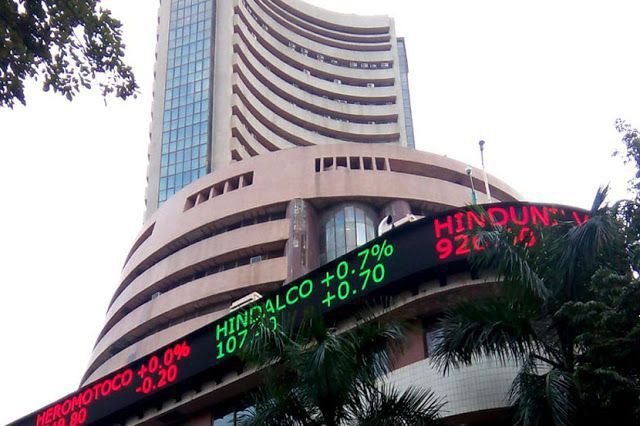Important Updates from NSE and BSE Regarding Index Derivatives

The National Stock Exchange of India (NSE) and the Bombay Stock Exchange (BSE) have jointly announced significant changes to their index derivatives offerings. These changes include the discontinuation of weekly derivative contracts for certain key indices and an increase in the minimum lot sizes for index derivatives contracts.
Read along to understand the important updates as per the NSE and BSE circulars regarding these index derivatives.
NSE and BSE Increase Lot Sizes for Index Derivative Contracts
The National Stock Exchange (NSE) and the BSE announced that the lot sizes for index futures & options (F&O) contracts have been increased. The new measures will come into effect on November 20, 2024.
Following the new regulations by the Securities and Exchange Board of India (SEBI), NSE has increased the lot sizes of Nifty 50 from 25 to 75, while the Bank Nifty lot size has been increased from 15 to 30. BSE has increased the lot sizes of the BSE Sensex contracts from 10 to 20 and BSE Bankex contracts from 15 to 30.
The table shows the existing and new lot sizes for these index derivative contracts as per the circulars from the two exchanges (NSE, BSE) issued on October 18, 2024, and October 21, 2024, respectively:
|
Index Derivatives Contracts |
Existing Lot Size |
New Lot Size |
|
Nifty 50 |
25 |
75 |
|
Bank Nifty |
15 |
30 |
|
Nifty Midcap Select |
50 |
120 |
|
Nifty Financial Services |
25 |
65 |
|
Nifty Next 50 |
10 |
25 |
|
BSE Sensex |
10 |
20 |
|
BSE Bankex |
15 |
30 |
|
BSE Sensex 50 |
25 |
60 |
The circular also stated that the changes in the lot sizes will apply to all new index derivative contracts, including weekly, monthly, quarterly, and half-yearly contracts.
According to the circular, the existing weekly and monthly expiry contracts will continue with the existing lot sizes till their respective expiry dates. Quarterly and half-yearly existing expiry contracts will be transitioned to the new lot sizes on December 24, 2024, for Bank Nifty, and December 26, 2024, for Nifty.
Long-dated (quarterly and half-yearly) contracts with expiry dates of March 2025 and beyond will retain their current market lot until December 27, 2024, post which the market lot for all long-dated BSE SENSEX contracts will change to the new market lot.
How Will This Impact Traders?
An increase in the lot size significantly impacts traders, as they will now have to pay more to enter a trade.
For example, previously, if a trader wanted to buy a Nifty 50 option with a premium of Rs 100, the trader would have to pay Rs 100 x lot size. So, Rs 100 x 25 = Rs 2,500 per lot. With an increase in the lot size, the trader will now have to pay Rs 100 x 75 = Rs 7,500 per lot.
Similarly, option sellers will require higher margins for their trades. For example, if a trader previously required a margin of Rs 70,000 to sell one lot of a Nifty 50 option, the higher lot size will push up the margin requirements to approximately Rs 2,10,000.
NSE to Discontinue Weekly Derivative Contracts for Bank Nifty, Nifty Midcap Select, and Nifty Financial Services From November
In a regulatory update on 10 October 2024, the Securities and Exchange Board of India (SEBI) has implemented new rules to stabilize the derivatives market, limiting weekly index derivatives to one per exchange.
In response to this new regulation introduced by SEBI, the National Stock Exchange of India (NSE) has announced plans to discontinue weekly index derivative contracts for the Bank Nifty, Nifty Midcap Select, and Nifty Financial Services indices. Effective from November, the NSE will no longer offer weekly options contracts for these indices.
Per these regulations, the BSE has also announced that it will discontinue weekly index derivative contracts for the SENSEX 50 and BANKEX effective November 14 and November 18, respectively.
Given below are the last trading dates for these contracts as per the circulars (NSE, BSE) issued on October 10, 2024:
|
Indices |
Expiry Date/Last Trading Day of Contracts |
|
Nifty Bank |
November 13, 2024 |
|
SENSEX 50 |
November 14, 2024 |
|
BANKEX |
November 18, 2024 |
|
Nifty Midcap Select |
November 18, 2024 |
|
Nifty Financial Services |
November 19, 2024 |
Along with this, SEBI has also introduced new monitoring measures for intraday positions. Starting November 20, exchanges will be required to track intraday positions at least four times daily. Penalties for any violations will be similar to those currently in place for end-of-day position breaches.
Impact on Investors and Traders
The discontinuation of weekly expiry contracts will have an impact on traders and investors who use these contracts for their trading strategies. The discontinuation could lead to changes in volatility patterns and pricing dynamics. It is advisable for investors to closely monitor market movements and consider alternative investment options.
Some analysts anticipate that the discontinuation could have a limited impact on overall market liquidity and volatility. However, others may express concerns about the potential for disruptions in certain trading strategies.
Disclaimer: This blog is solely for educational purposes.
To read the RA disclaimer, please click here